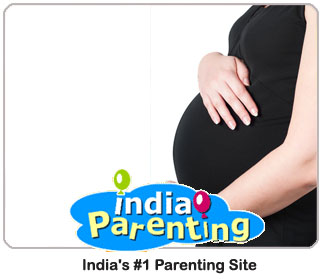 Name: DrAshima Gogia
Name: DrAshima Gogia
Pregnancy is an experience full of growth, change, enrichment, and challenge. It is a time when you as a mother confront your fears and expectations about becoming parent and begin to determine your own parenting style. The following sections of the article compiled with by renowned Gynaecologist Dr. Ashima Gogia Artemis Hospital, Gurgaon will help you understand the normal psychological & physiological changes that occur throughout the different stages of pregnancy.
Psychological Changes in the First Trimester you may not be able to see the changes that are happening during the first trimester, but they are significant. Dr. Ashima Gogia told that during this time, some new mothers might be filled with a feeling of anxiety about losing their new baby. Physiologically the pregnant women faces sensitive breasts & bloated feeling are often the first signs of pregnancy. Hormonal changes take place and mood swings are usual. The uterus undergoes the most profound changes during pregnancy, increasing to 20 times its original weight and changing shape several times. The cervix, vagina and breasts also change, as the body increases blood supply and begins producing milk.
Nutrition requirement would not be any extra calories in the first trimester. A well-balanced diet rich in whole grains, seasonal fruits, vegetables, fish, lean meat and poultry, legumes and low-fat dairy products is the foundation of a nutrient-dense diet for an expectant mother. A low-fat maternal nutritional supplement may help fill the nutrient gaps in your diet. Always eat clean and safe foods in small portions but eat frequently every 3-4 hours as told by Dr. Ashima Gogia
Vital Nutrients: Protein is needed to build muscle and tissue and form the placenta. Folic acid is critical for cell division and organ formation. Iron helps make new red blood cells. Zinc assists with growth and development Avoid alcoholic drinks, limit caffeine from coffee, tea, chocolates and colas. Avoid Juices - They can worsen the gastritis or acidity
Dr. Ashima Gogia Explains, The Psychological Changes in the Second Trimester once the stress and anxiety of the first trimester have passed, the emotional changes of the second trimester begin. Though the feelings during this time will usually be less intense, they can be equally as troubling. Many mothers begin to feel self-conscious about the weight they are putting on to support their baby, and these feelings can lead to low self-esteem. The Physiological Changes would include feeling of Nausea and tiredness, Hypersensitivity to odors and flavors. Dr. Ashima said that it is seen often that pregnant women is more forgetful and sleepy than usual. Breasts still feel full. Skin may begin to show unique pigmentation patterns. Tissues around the vagina become bluish as more blood Supply nourishes the baby. Pregnant women feel comfortable now that early pregnancy discomforts are settled and weight gain is moderate. May crave for particular foods and experience more vaginal discharge. Belly button may now stick out. Stretch marks may form on abdomen, buttocks and breast. Pregnant women feel baby movement in form of wave – like movements.
Nutritional Needs for this stage of pregnancy include increased food intake to provide more energy and a balanced intake of Protein, carbohydrate and fat. Small but frequent portion of food is recommended. Ideally you should eat every 3-4 hrs. Focus on foods that are nutrient dense, low in fat and sugar but great sources of vitamins and minerals. Include fibre rich foods and plenty of nourishing fluids to prevent constipation.
Vital Nutrients: All the B vitamins and vitamins A, C and D play a part in ensuring that the baby Grow well. You will draw calcium from your body stores to build bones and teeth. So, get enough calcium from dairy products or maternal nutritional supplements. Adequate fibre will ensure you have a health gut.
Food Alert: Amount of liquids intake, soups, Milk, water etc should be increased but they should be taken in small portions (in sips or not More than 1/4 glass at a time).
Psychological Changes in the Third Trimester As told by Dr. Ashima Gogia, women are seen anticipating childbirth and coping with significant physical changes. While fears of losing the baby have usually disappeared by this point, a new anxiety takes its place the fear of the baby' s arrival. Also, worries about labor and birth are also common during the last three months of pregnancy.
Physiological Changes Include Clumsiness as weight gain is substantial. Pregnant lady May also feel more aches and pain. As uterus presses upwards, you may feel a little breathless. Pregnant Women may experience leg cramps, constipation and itchiness. Heavy From now until delivery, you will nearly gain ½ kg every week. Pregnant Lady may begin to experience waddling to compensate for baby' s increasing weight. Experience mixed emotions varying from fear to excitement. Thrilled and nervous Feel more pressure on the lower abdomen wall. Mild contractions or ' bloody show' (discharge appears pink or red tinged) may indicate the early labour. Regular contractions or a ' bloody show' indicates the onset of labour.
Nutritional Requirements According to Dr. Ashima Gogia would include adequate intake of foods rich in iron, DHA and choline. Iron-rich foods include lean meat, fish, poultry, legumes and green leafy vegetable. Fatty fish, such as herring, mackerel, sardines and salmon are good sources of DHA. Choline is found in eggs, beef, chicken, turkey, salmon and baked beans.
Vital Nutrients: Iron supports the expansion of your blood volume and baby' s brain growth development of the nervous system and the neurotransmitter. Lack of iron during baby' s development can negatively impact learning and behavior. DHA helps to build baby' s brain and eyes. Choline is involved in the development of the hippocampus, which is known to be the seat of memory in the brain. A healthy well-balanced diet is the foundation for good health. You will need to eat a little more and drink more fluids to meet your energy and fluids needs.
Dr. Ashima Gogia also mentioned, “Once your precious little baby is born, breast milk is the best food for your new born baby. Breast feed the baby for the first six months of life, and then continue to breastfeed partially for as long as the baby and you wantâ€. Breast-feeding demands even more energy and valuable nutrients from the mother' s diet than pregnancy. A maternal nutritional supplement will help you achieve the nutrient goals with greater ease. But top feeding should be started along with breast milk after 6 months of age.
Vital Nutrients: Include foods rich in essential fatty acids. DHA and AA- and choline to support brain growth spurt. DHA supports development of the brain and retina. Choline and phospholipids maintain cell structure and support the functioning of the cell membranes. Nucleotides are essential for normal cell function and replication, which is important for overall growth
Some Points given by Dr. Ashima Gogia that must be avoided during Pregnancy:
• Avoid tea, coffee, aerated & alcoholic drinks
• Avoid spicy, oily & fried food.
• Avoid outside food, outside raw cut fruits & Vegetables.
• Avoid milk early in the morning & late in the night.
• Avoid juices unless prescribed and instead take fresh fruits.
• Don' t take full glass of water or any liquid (to avoid nausea, drink in sips).
• Avoid strenuous exercise, weight lifting or brisk walking.
• Avoid Intercourse jerks & journey in first 4 months and last 2 months of pregnancy.
• Mild general weakness, nausea is normal & don' t need medication.
• Avoid self medication.
















